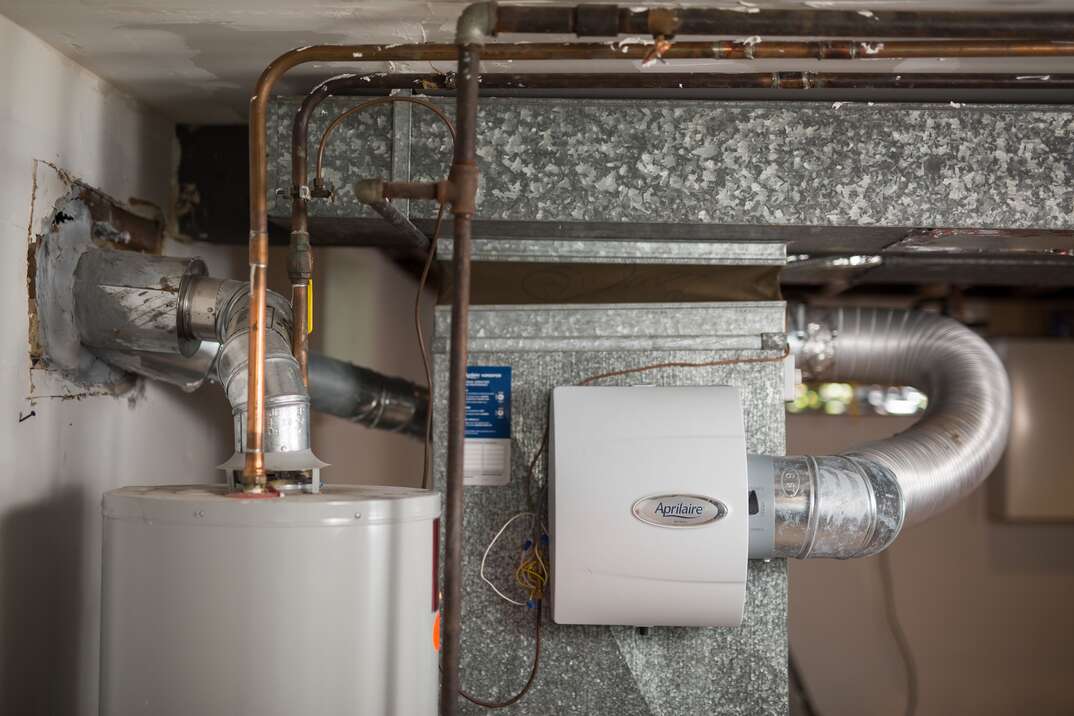The Ultimate Guide to Installing MVHR Heat Recovery System Like a Pro!

Introduction to Home Transformation with MVHR Systems
Transforming your living space into a haven of comfort and efficiency is a goal shared by many homeowners. With the Mechanical Ventilation Heat Recovery (MVHR) system, this vision becomes a reality. This guide will walk you through the process of installing an MVHR system in your home, empowering you to take control of your indoor environment like a pro.
Understanding the Benefits of Installing MVHR
Before diving into the installation process, it's essential to grasp the numerous benefits that MVHR systems offer. From improved indoor air quality to significant energy savings, MVHR systems provide a comprehensive solution to the challenges of heating and ventilation in modern homes.
Preparing Your Home for MVHR Installation
Preparing your home for MVHR installation involves assessing factors such as available space, existing ventilation infrastructure, and electrical connections. Clearing clutter and ensuring access to key areas will facilitate a smooth installation process.
Choosing the Right MVHR System
Selecting the right MVHR system for your home requires careful consideration of factors such as airflow rates, heat recovery efficiency, noise levels, and warranty coverage. Consulting with HVAC professionals can help you identify the best option based on your specific needs and budget.
Installation Process: Step-by-Step Guide
Assessing Your Home's Layout
Begin by assessing your home's layout to determine the optimal location for installing the MVHR unit. Consider factors such as proximity to electrical outlets, accessibility for maintenance, and minimizing ductwork lengths for efficient airflow.
Positioning the MVHR Unit
The MVHR unit should be positioned in a central location, such as the attic, utility room, or basement, to ensure even distribution of air throughout the home. Mount the unit securely on a stable surface, taking care to leave ample space for airflow and maintenance access.
Connecting Ductwork and Ventilation Points
Next, connect the MVHR unit to the existing ductwork and ventilation points throughout your home. Ensure that ducts are properly sealed to prevent air leaks and optimize system efficiency. Pay special attention to ventilation points in high-traffic areas and rooms requiring increased airflow.
Electrical Connections and Controls
Connect the MVHR unit to the electrical supply and install any necessary controls or thermostats according to manufacturer instructions. Test the system to ensure proper functionality and adjust settings as needed to achieve desired comfort levels.
Common Challenges and Solutions During Installation
During the installation process, you may encounter challenges such as restricted access, incompatible ductwork, or electrical issues. Working with experienced installers and troubleshooting problems as they arise will help ensure a successful installation.
Testing and Commissioning Your MVHR System
Once installation is complete, thoroughly test and commission your MVHR system to verify proper operation and performance. Conduct airflow tests, check for air leaks, and calibrate controls to optimize efficiency and comfort.
Maintenance Tips for Long-term Performance
To maintain optimal performance and longevity of your MVHR system, implement a regular maintenance schedule. This includes cleaning or replacing filters, inspecting ductwork for damage or obstructions, and scheduling professional servicing as recommended by the manufacturer.
Enhancing Comfort and Efficiency with MVHR
With your MVHR system installed and operating smoothly, enjoy the benefits of enhanced comfort, improved indoor air quality, and significant energy savings. Take pride in knowing that you've taken proactive steps to create a healthier, more efficient living environment for yourself and your family.
Real-life Examples of Successful MVHR Installations
Explore real-life examples of successful MVHR installations and hear from homeowners who have transformed their living spaces with this innovative heating and ventilation technology. Learn from their experiences and gain inspiration for your own home improvement projects.
Conclusion
In conclusion, installing an MVHR system in your home is a transformative journey that promises to revolutionize your living space. By following this comprehensive guide and leveraging the power of MVHR technology, you can achieve unparalleled comfort, efficiency, and peace of mind in your home.
